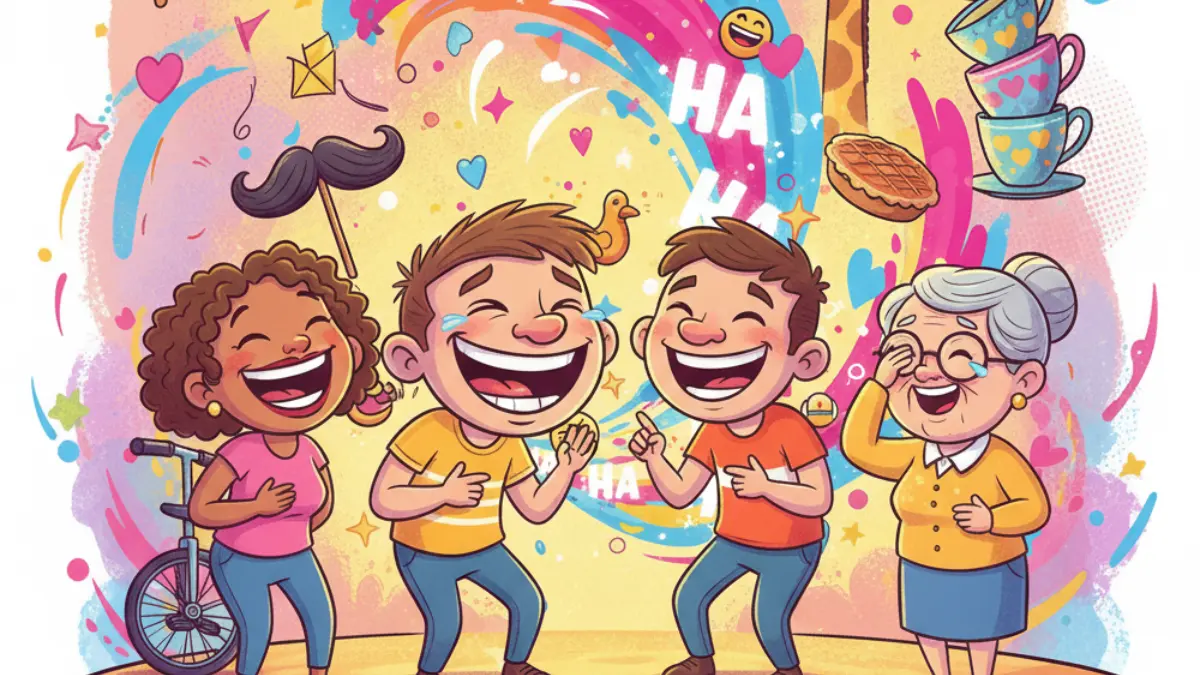Your sense of humor may be one of the strongest tools you have for building trust, warmth, and connection.

Affiliative Humor Style Scale
Learn how laughter shapes your relationships.
Some people use humor to entertain, others to cope—but affiliative humor is about something deeper: connection. This scale explores how often you use lighthearted jokes, playful storytelling, and shared laughter to strengthen bonds with others.
People who score high in affiliative humor often create social ease, defuse tension, and help groups feel more connected. Understanding this style can offer insight into how you relate to friends, family, and romantic partners, especially in emotionally meaningful moments.
If you’re interested in how humor intersects with emotional closeness, you may also want to explore our Relationship Satisfaction Scale or our Authenticity in Relationships Scale.
Frequently Asked Questions
- How long does this quiz take?
- It takes about 2 minutes to complete.
- Are my responses private?
- Yes, all Affiliative Humor Style Scale answers are anonymized and confidential.
- Can I take this test more than once?
- Yes, you can retake the test any time to see how your Affiliative Humor Style Scale results may have changed.
- Will this quiz tell me if my humor is healthy?
- This quiz focuses on social, relationship-building humor and offers insight into how you use laughter to connect with others.
- Can my results help improve my relationships?
- Yes. Understanding your humor style can help you communicate more effectively and strengthen emotional bonds.
Affiliative Humor Style Scale: Take The Test
References
Disclaimer
This scale is designed for educational purposes and is not a substitute for professional diagnosis or treatment.

